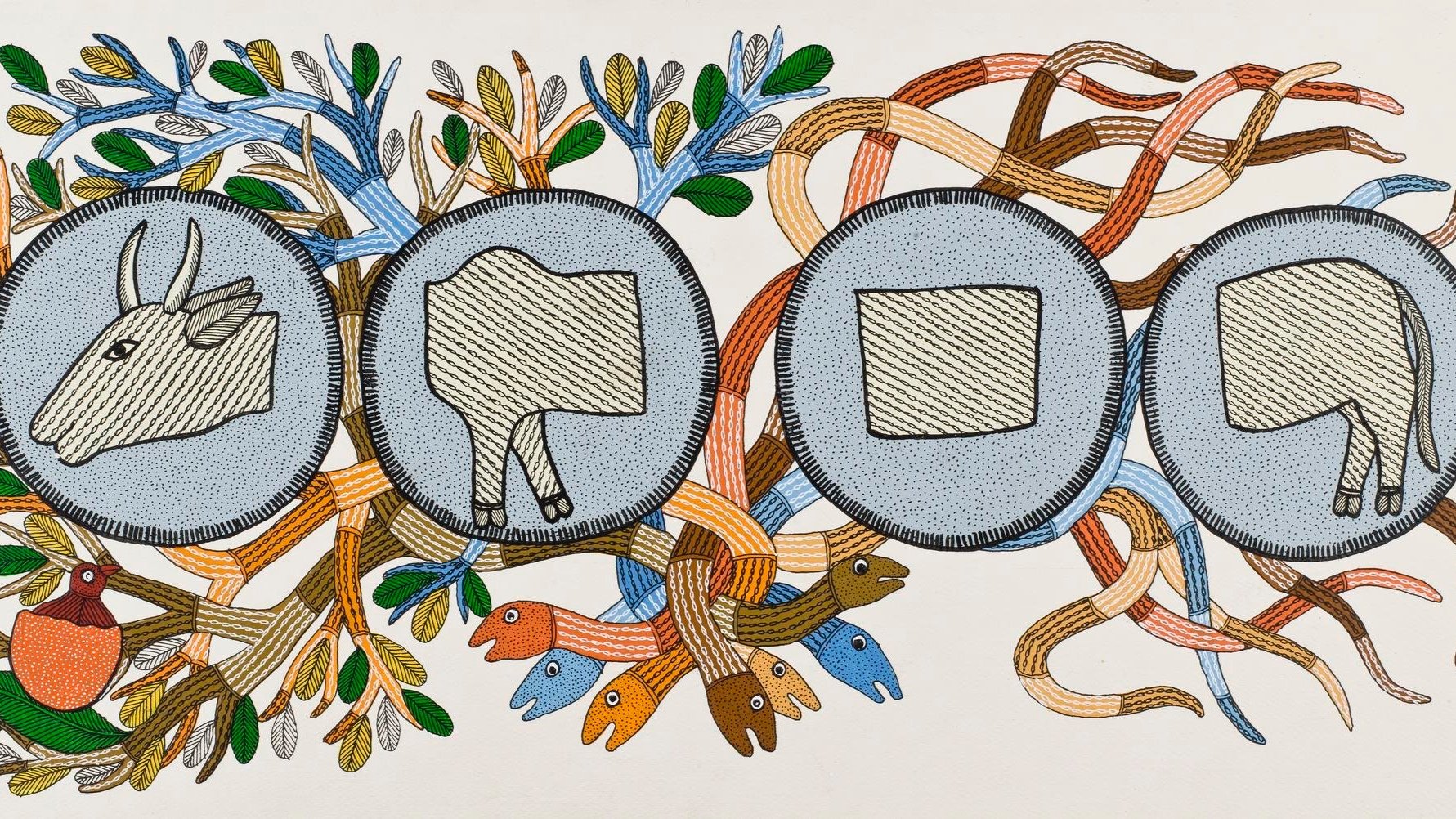



The London Jungle Book: Bhajju Shyam
“Bhajju Shyam is causing quite a stir among museum-goers in London. This is London as you’ve never seen it before. An incredible vision.”— BBC World Service
“His art transforms the streets, pubs… into strange bestiaries... and disarmingly spins the west's anthropological gaze back on itself.” — Sunday Herald
I was fortunate to meet and to befriend the artist Bhajju Shyam in the early 2000s. Bhajju, a brilliant artist from the indigenous Gond people of central India comes from a mural painting tradition, in which the walls of houses are painted several times a year, to mark celebrations and the change of seasons. Each new painting covers up the previous one - a kind of permanent impermanence.
The New Delhi-based designer and curator Rajeev Sethi commissioned Bhajju to paint the walls of an Indian restaurant in London, and spent two months in the city, his first time in a Western metropolis. I met Bhajju shortly after his return and along with and my colleagues at the publishing house Tara Books, collaborated with him to create a visual travelogue of his journey. Titled ‘The London Jungle Book’ it proposes a counterpoint to Kipling’s ‘Jungle Book’. Interestingly, Bhajju’s community had been ‘studied’ by the pioneering British anthropologist Verrier Elwin, who married a Gond woman, lived with the community, and wrote several books about the them. By bringing the signs of the Gond forest to bear on the city, Bhajju not only turns London into a jungle, he reverses the gaze, and reclaims the space of the storyteller. In Bhajju’s London, the Underground becomes a giant earthworm and Big Ben merges with a massive rooster (two concepts of time).
I collaborated with Bhajju on turning what a series of conversations, or oral narratives into the written form of the book, while retaining the oral voice. I was also able to secure a co-publishing and exhibition partnership with Museum of London, and we were able to simultaneously launch the book and the exhibition at the Museum, to wide acclaim. An early champion of the book, who was invaluable in its success was the late great art critic and writer John Berger. I sent Berger the book in its early stages, and he supported the work from afar and in-person, situating it powerfully for the British arts and media establishments as a work that breathes the ancient spirit of wonder back into the act of travel, and invites us to rethink our ways of seeing.

The inimitable Bhajju Shyam.

The book published in conjunction with the exhibition.

With John Berger, who championed the book and exhibition.